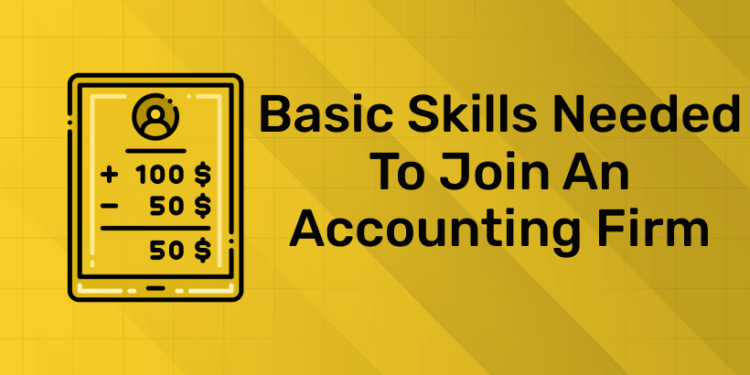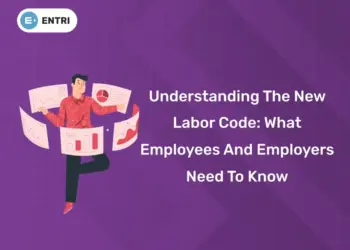Table of Contents
If you’re interested in pursuing a career in accounting, you may be wondering what skills you need to get started. Luckily, there are some basic skills that can help you succeed in this field. In this blog post, we will cover the most important accounting skills for beginners, including knowledge of accounting software, understanding financial statements, time management and organizational skills are practiced in accounting firms.
Unlock Your Accounting Potential – Enroll in Our Accounting Course!
Basic soft skills for accountants
It’s important to remember that in any job, “soft skills” can help you in the workplace, as can more specialized technical skills needed to perform specific tasks. Soft skills are basic technical skill sets that are worth developing as you complete a more specific accounting program. They can be helpful in improving communication in the workplace and helping to lead a group of other employees effectively.
The U.S. Bureau of Labor Statistics and O*Net Online list the following general skills as important for accountants:
- Excellent written and oral communication
- Organization and Attention to Detail
- Analytical and Problem Solving Skills
- Time Management
- Systems Analysis
- Mathematical Reasoning and Deduction
- Critical Thinking
- Active Learning
- Office knowledge
- Proficient in Microsoft Office Suite
- Specialized accounting skills
Unlock Your Accounting Potential – Enroll in Our Accounting Course!
Accountants and Auditors work with financial documents and effectively and accurately organize large data sets; Therefore, they must be familiar with a variety of financial management and budgeting software, as well as generally accepted accounting principles (GAAP) and accounting processes.
Key technical skills for those pursuing a career in accounting include:
- Financial reporting and analysis (Brentmark Estate Planning Quickview, Delphi Technology, and Oracle E-Business Suite Financials software platforms)
- Financial statements and tax preparation software (ATX Total Tax Office, CCH ProSystem fx TAX, Intuit Lacerte, and Orrtax Software IntelliTax Classic)
- Account reconciliation (Intuit QuickBooks, Sage 50 Accounting, and Sageworks ProfitCents)
- Compliance software (ACCUCert, FLS eDP PAYROLLtax, Intrax ProcedureNet, and Paisley Cardmap)
- Spreadsheet software (Microsoft Excel, Google Sheets)
- Project management software (Microsoft SharePoint, Oracle Primavera Enterprise Project Portfolio Management)
- Enterprise resource planning software (Microsoft Dynamics, NetSuite ERP, Oracle PeopleSoft Financials, and SAP Business Objects)
- Database reporting software (ADP Super Report Writer, SAP Crystal Reports, and FileMaker Pro)
Accounting Skills for Beginners
1: Accounting provides information on
Business Knowledge
Technology Expertise
Communication Skills
Flexibility & Adaptability
Creativity & Problem Solving
Creativity is valued in finance and accounting to think creatively when solving complex financial problems and identify innovative solutions. Accountants often face unique challenges that require creative problem-solving skills to solve them effectively. By approaching problems with creativity and analytical thinking, accountants can discover new opportunities and optimize financial processes.
Customer Service
Accountants play a vital role in providing exceptional customer service to clients by providing accurate and timely financial advice and support. Building strong customer relationships requires care, empathy, and responsiveness to customer needs. Excellent customer service promotes trust and loyalty, improves a company’s reputation, and attracts new business opportunities.
Analytical
Another essential skill of an accountant is the ability to understand financial statements. Financial statements are documents that show the financial situation of a business. These include the balance sheet, income statement, and cash flow statement. You will need to know how to read and interpret these statements to provide valuable information to customers and colleagues.
Organizational Skills
Accountants must be very organized to keep track of financial records and documents. This includes managing files, documents and reports in a clear and organized manner. Being organized can help you work more efficiently, reducing the risk of mistakes and errors.
Critical Thinking
Critical thinking is essential for accountants to objectively evaluate financial data, identify trends, and make informed decisions. Accountants must analyze complex information, assess risks, and predict potential outcomes to make strategic recommendations to clients. Strong critical thinking skills enable accountants to accurately explain financial implications and effectively mitigate risk.
Unlock Your Accounting Potential – Enroll in Our Accounting Course!
Placement Oriented PWC Business Accounting Course
PWC Certified Business Accounting Course by Entri App: Master in-demand skills, ace interviews, and secure top-tier jobs.
Join Now!Conclusion
In short, if you want to join an accounting firm, you will need to develop a variety of skills. These include knowledge of accounting software, understanding of financial reporting, time management skills, and organizational skills. By practicing these skills, you can increase your chances of success in this rewarding and challenging field.
Remember that these skills can be developed and improved through practice and dedication. Whether you’re just starting out or looking to advance your accounting career, focusing on these essential skills can help you achieve your goals. So don’t be afraid to take on new challenges and opportunities: with the right skills, you can succeed in the world of accounting!
If you would like more details about finance and accounting courses, contact us at Entri App and we will be happy to advise you. You can also fill out the form on the right and a member of our team will contact you.
Placement Oriented PWC Business Accounting Course
PWC Certified Business Accounting Course by Entri App: Master in-demand skills, ace interviews, and secure top-tier jobs.
Join Now!Frequently Asked Questions
What skills do you need for an accounting job?
Analytical thinking, attention to detail, proficiency in accounting software, and knowledge of financial regulations are essential skills for an accounting job.
What are the three golden rules of accounting?
The three golden rules of accounting are:
Debit the receiver, credit the giver.
Debit what comes in, credit what goes out.
Debit expenses and losses, credit incomes and gains.
What are the basic soft skills of an accountant?
The basic soft skills of an accountant include effective communication, time management, teamwork, adaptability, and problem-solving abilities.











